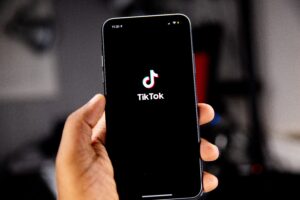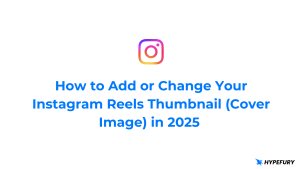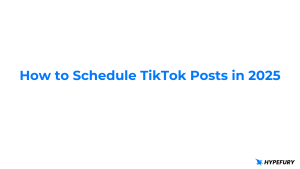TikTok, a dance app, transformed into a search engine by Gen-Z? Who would’ve thought?
And yet, in some way, it does make sense.
With the number of ads on Google, it wasn’t going to be long before this search engine would reach its own expiration date, at least for part of the population.
Back in the day, when people used Yahoo, the number 1 complaint was the number of ads people kept receiving. If searching for the correct way to perform the Heimlich manoeuver would make me see an ad for the best dresses for a formal occasion, I definitely wouldn’t be pleased!
Perhaps we should simply be glad that the new generation has the means to search for what its heart desires, but it is nevertheless interesting to look at why TikTok, a social media platform, has become a go-to for Internet searches for many and why Google, on the other hand, is losing steam.

Why not Google?
Google has been around for decades and nobody ever thought there were any questions that it couldn’t answer. Yet perhaps the problem wasn’t so much that it couldn’t answer our questions, but rather HOW it answered them.
As stated above, Google’s main issue is the way it shoves ads in your face. That’s somewhat understandable since ads are a way for brands to make money, but still, a search engine is meant to primarily do some searching, and not some aggressive advertising.
When a new platform is high up on the trending ladder, it is going to be used for multiple things. Think of it like your favorite shirt – you are going to pair it with as many pants as possible to get the most use out of it. This, in addition to Google’s fading popularity, is why it comes as no surprise that TikTok is now being used as a search engine.
Why choose TikTok of all platforms?

An image can speak a thousand words, and people are more into videos than they are into words.
On TikTok, you can easily watch a 30-second long video and get twice the information that you would’ve gotten if you were to read about it. It’s a huge time saver!
Efficiency may be the top reason, but opinions follow close behind. When you’re searching for something on Google, you will likely find a generic answer to your question – you’d have to be redirected to another platform to get a genuine, personal opinion from someone. On TikTok, you get all of that information and an opinion in one video.
The level of trust that TikTokers have with their audience compels more and more people to rely on them for information, and naturally, this plays a huge role in TikTok being used as a search engine. When reading from Google, you often don’t know where the information is coming from. On TikTok, it’s clear: the person in the video.
TikTok has a to-the-point algorithm. This means that after around 2 months of usage from your side, all your search results will be custom tailored to your liking. This makes it very hard to leave!
Could this trend have a dark side?
For all its entertainment value and its ease of use, TikTok may not be the best place to get information. Let’s take a look at some of the possible negative outcomes of this practice:
-
Dopamine irregularities
Probably one of the most dangerous results of overusing TikTok is dopamine irregularities. What is dopamine? It’s a type of neurotransmitter and hormone that plays a role in movement, memory, pleasurable reward, and motivation – in a word, it’s the “happy hormone”.
Short videos are dopamine killers – and low and behold, TikTok offers nothing but short videos. They give you a lot of pleasure in quick succession, which just isn’t natural. In the long term, TikTok videos will kill your attention span and your natural ability to think calmly, which in general lowers your potential and just makes you lazy!
The results in young adults can be pretty alarming: grades dropping, lack of motivation, a toll on your mental health – the list is long!
-
Lack of foundation to most claims
Like any other internet platform, TikTok is prone to divulging misinformation. It gets even worse when dangerous information is spread that could potentially physically or mentally harm someone with no consequences.
While Google can get sued if something happens due to its search engine results, but the same doesn’t apply to TikTok – it’s not a very regulated platform.
Some creators may come to take advantage of their followers!
-
TikTok guidelines
Since TIkTok was intended as an app for young people, it doesn’t provide all that much information in terms of rules of behavior. Paradoxically, its guidelines are very strict and accounts get banned for the smallest of words, which causes a huge rift in the information shared. There will always be a part of the information that will be left out due to guidelines. TikTok isn’t a know-it-all!
-
A danger to minors
Ironically, what started as a dance app for children has turned into a huge danger for them. TikTok’s age rating is 12+ which means there are a lot of minors on the app who are going public with their content. There aren’t any means to protect them from being catfished, overly sexualized for dance trends, or for their content to be viewed by harmful individuals.
And since TikTok is being used as a search engine, there is no way to shield minors from who they may talk to.
While there may be minors on Google as well, there is little to no way for them to interact with one another on that search engine.
-
Trafficking victims
While minors can get groomed through TikTok, adults and young teens can also become victims to human trafficking through the app. One video that reveals a street outside your house, or an innocent day in your life showing your most visited coffee shop could be enough to put your life in danger. Using the platform as a search engine doesn’t necessarily put you at any risk, but you never know who is searching for your street address or city.
-
A life that looks picture perfect
This phenomenon was very much talked about around 2016 when discussing Instagram. The showcase of a picture-perfect life or, in other words, sugar-coated information only showing the best part of any news you are searching for, should be labeled as false advertising. Unfortunately, that is not at all the case.
While heavily filtered pictures of a day-to-day life may be the cause of some insecurity, heavily filtered information could be 10 times worse in terms of consequences. A lot of young audiences who haven’t done deep research can end up receiving information that is false, and believing it and sharing it with other susceptible people could start a chain of misinformation.
In conclusion
While this post meant to highlight the negative sides of using TikTok as a search engine, it is also worth mentioning the plus sides of the app. With its focus on dopamine-boosting videos and graphics, TikTok can help them access useful information and great insight insights that will look appealing to them.
Do you think this new search engine will last? Or is it a gateway to hell? Let us know what you think!






